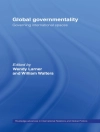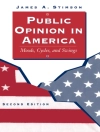Can Russia, the European Union and the three major EU member states adopt a unified policy line in the global arena? Charlotte Wagnsson investigates the cohesiveness of ‘greater Europe’ through the detailed scrutiny of policy statements by the leadership elites in the UK, France, Germany, Russia and the EU in connection with three defining events in international security: the crisis in Kosovo of 1999; the terrorist attacks of 9/11 and the Iraq crisis of 2003. This extensive empirical enquiry results in a critical constructivist response to neorealist understandings of European security.
The book is available in paperback for the first time. It contrasts the EU’s new way of ‘doing security’ with the established, competitive bilateral interplay in the European security sphere and provides a clue to the kind of security politics that will prevail in Europe. A joint Moscow-Brussels approach would improve the chances of both increasing their relative strength vis-à-vis the USA, but serious cleavages threaten to undermine such a ‘greater European’ common view on security. Wagnsson considers the extent to which the major European players pursue similar objectives, and assesses the possible implications for and the chances of greater Europe emerging as a cohesive global actor.
This meticulously researched book will interest scholars and students with an interest in international security, the EU’s international role, European international relations and Russian security.
Jadual kandungan
List of tables
Preface
List of abbreviations
1. Security in a greater Europe
2. Kosovo: a precedent?
3. 11 September 2001: a new perspective unfolds
4. Iraq reshuffles Europe
5. The European Union and the major European powers
6. Russia and the EU: The need for pragmatism
7. Will greater Europe unite?
Bibliography
Index
Mengenai Pengarang
Charlotte Wagnsson is Associate Professor in Political Science at the Swedish National Defence College, Stockholm












